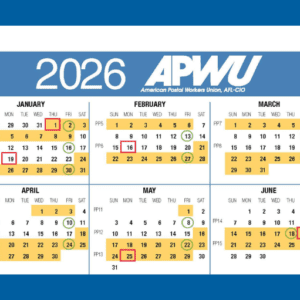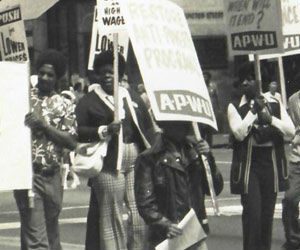March 1, 2021
Learning the Union Difference
(This article first appeared in the March/April 2021 issue of the American Postal Worker magazine)
There is certainly something to be said for developing working relationships with postal management or company representatives. When you have someone from the other side that you discuss issues with you develop a feeling for how each other operates and can plan around their responses.
The Support Services Division met regularly with the operations manager for the Salmon Companies and Mail Contractors of America (MCA) group. Since Salmon bought out the MCA company years ago the operation manager was the same person for both companies. Although they had separate collective bargaining agreements they were negotiated by the same parties. In addition the same person took responsibility for labor management and grievance issues.
This meant our contract negotiating and grievance procedures were streamlined and the parties were able retain the history between each other over the years. This helped us with the many issues that arose. It seems that all of that has changed. The Salmon and MCA group were bought out by a private sector trucking company named Hoovestol Trucking. At the time Hoovestol also owned a mail haul company called Eagle Express. Hoovestol’s goal was to create the largest private sector mail hauling company. The companies merged and they are now operating under one company called 10 Roads Express. The new operation went into effect January 1 2021.
As you can imagine when you attempt to combine four major companies together you will have issues. In addition to the administrative issues with this type of venture you throw on top of it the fact that each company had their own operational procedures. To make things even more complicated 10 Roads decided to change payroll companies. Why would you not wait until you had the kinks worked out before attempting to take that on? Needless to say this change has caused many problems.
The merger meant putting employees from the different companies under one umbrella for health benefits so they solicited health care companies for rate and benefit quotes. The timing of the merger also meant the benefit packets were late in being issued to the employees for their selections. This decreased the amount of time an employee had to make decisions on personal health care plans long/short term disability insurance 401k life insurance and dental and vision programs.
Perhaps the biggest challenge has been the need for the Support Services representatives to educate the new company on the union collective bargaining agreement and members’ rights under their contract. It is quite clear that this company has not dealt with union represented employees and working under the terms of a union contract.
We have to constantly remind them that they need to approach the union prior to implementing working condition changes. The newly formed company did not retain the Salmon operations personnel and appear to be making decisions without getting any advice or information on the history of the unit from the previous administration. From the labor relations aspect this has proved to be challenging. The company finally determined that they need to have a permanent representative who handles grievance situations and has hired a full-time labor relations manager.
On a positive note the non-union drivers are seeing the union difference. Many are beginning to understand that through the collective bargaining process they can achieve added benefits and protections. We have had many drivers approach our union representatives wondering how they can form or join the union.
Sign up for News



